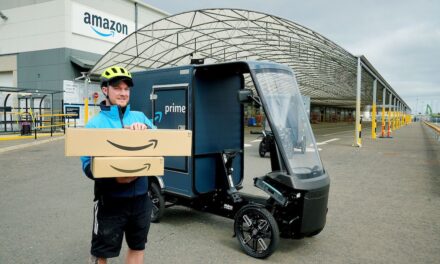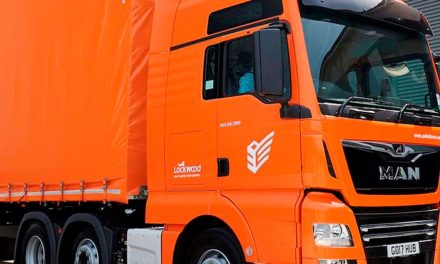
Trade with China is boon to industry of logistics
The huge wave of trade with China and other countries that has washed over ports in Southern California has been a boon to companies that once saw themselves simply as small warehouse and distribution businesses.
Processing and distributing millions of freight-laden containers through the region and to the rest of the United States has become the largest source of jobs on the West Coast. But the overall growth in the industry is raising new challenges, as California regulators demand reductions in air pollution in the port areas and larger companies raise the pressure on smaller businesses.
Small to medium companies exemplify the logistics industry, a fast-growing business of warehousing, trucking and freight forwarding on the cutting edge of technological and social trends, from Internet commerce to evolving Latino markets. Their businesses have grown along with the ports in Southern California, which now handle 44 percent of the merchandise imported to the United States, according to the Los Angeles County Economic Development Corp.
Formerly a business of thousands of trucking and storage outfits, logistics has become a giant industry in the past decade as international trade has grown. U.S. Commerce Department statistics show that the value of imports and exports reached almost USD 3 trillion in 2006, up 67 percent since 1999. At USD 900 billion in annual revenue, logistics now accounts for some four million jobs across the United States. It is the largest single source of employment in Southern California, at more than 650,000 jobs, according to the economist John Husing, of Redlands, California, an authority on regional industry.
Weber Distribution is one of the companies that has grown along with the port. It started in 1925 as a warehouse operator for products made in the East and Midwest and shipped to the then-remote West Coast. Today, Weber, based in Santa Fe Springs, California, has 11 warehouses in three states, 500 employees and more than USD 120 million in revenue distributing products that come mainly from Asia through the enormous ports in Southern California.
Another company, Source Logistics, has benefited from rising demand in the United States for products from Mexico and Central and South America. Marcelo Sada founded the warehouse company in 1999 with the idea that he could help food companies in Latin America gain access to the rich expanse of supermarkets and specialty stores in the United States. Today, Source Logistics, in addition to its headquarters in Montebello, California, has warehouses and distribution centers in Laredo and Houston, Texas, and Atlanta.
Sada, from Monterrey, California, is a member of one of the most influential Mexican business families. He started in the export-import business in the early 1990s using public warehouses in the United States, but said he found the service and information deficient. With three partners, a USD 100,000 investment and a warehouse management software system, he started Source to help companies like Grupo Bimbo of Mexico City, a large bakery company.
The logistics business has been growing rapidly, but now competitive changes and serious challenges are looming. Large warehouse and trucking companies, like Saddle Creek of Lakeland, Florida, and Kenco Group of Chattanooga, Tennessee, are expanding partly by acquiring smaller companies, putting pressure on those that want to remain independent, said Butler of Weber Distribution. Global logistics managers, including C.H. Robinson of Eden Prairie, Minnesota, and Expeditors International of Seattle, are also bringing pressure on smaller operators.
The ports of Los Angeles and Long Beach, California, the largest port complex in the United States, are also being required by state and local regulators to reduce air pollution from their operations or face a halt to needed expansion.
In response, the ports have developed a plan that would sharply reduce air pollution during the next five years even as trade expands. As part of that plan, all trucks coming to take cargo from the ports will have to be replaced or retrofitted with new engines within five years.













